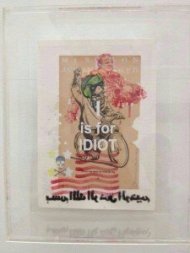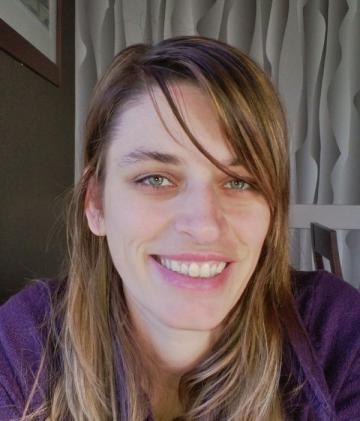Day always begins later. No breakfast. We chat to Alvin in the lobby and meet Pauline at 12:00 who checks us out. We pack up the bus and drive to a food court where we eat a little then to a bazaar with a second-hand book stall on the second floor where everyone buys books. We don't because of the weight. Under the piles of books our friends find early anthologies of poetry, a few novels, some with racy covers, and miscellaneous other things, mostly hard-cover ex-library stock. Among the books on the shelf are some that would not be seen in a regular bookshop such as Irshan Manji's The Trouble with Islam. After a while I sit down at the cafe on the same floor and drink some water. Here are a couple of notes:
STILLNESS
1.
An old man in white t-shirt and denim shorts in the cafe of the bazaar so thin he is barely there, his hair too thin, sits immobile at the metal table. He is so still I think he is meditating but when I look harder he seems to be taking his left pulse with his right hand. Then he takes his right pulse with his left hand. Each time a couple of minutes of absolute stillness. Then he folds his hands, palm upward as if to catch something from heaven. Judging from his expression he looks to be in despair but maybe that is just his way of keeping still. Maybe this is the heart of stillness, the capturing of it in moment after moment, capturing it with a purpose but little hope, like rain between dry spells or a moment of dryness between the rains.
2.
Beggars too are models of stillness. This one has bent himself so out of shape he looks permanent. His knee is higher than his shoulder, one leg ends in a stump and is tucked under the other but somehow off the ground. He is like a puzzle that one or other god has tried to solve but gave up, walked off and forgot or left to another god to sort out. His gaze is fixed on the ground or maybe it is the ground that has mesmerised him so it is not within his willpower to raise his eyes. In any case it is stalemate: zugzwang. The stillness is itself forgotten. It is like those pointless pennies in his glass begging jar in which light is the only thing that moves.
*
Then we set off to KL on the same highway we came on. Once again, as we approach the most spectacular part of the rout with its range of strange hills and mountains, the rain starts and soon it is almost monsoon-like, drenching and driving. Cars throw up spray. Traffic slows. There is a crash up ahead, a car upside drown and crushed. No sign of the driver or passengers. They are already gone. No blood either, but it mighthave been washed away in the rain.
Eddin has his mobile on and suddenly announces; Seamus Heaney has died! Shock. Alvin immediately goes on line. Semus had been ill for a while and had suffered a heart attack a couple of years back. Alvin finds a recording of him reading at Poetry Parnassus, a recording Alvin himself had made. We watch that and listen as well as we can. We talk about him for a while, then fall silent though eventually other conversation begins.
I won't begin to write an appreciation of his work here. I did meet Seamus a few times and had lunch with him in Dublin while I was International Writing Fellow there. He was charming, funny, generous and nicely mischievous, not a saint. I think he was careful not to be seen as a saint. The generosity sprang from his desire to say Yes to a great deal. I think he was deeply aware of his farming background and it kept him human and open to the non-literary. It is in fact what made him a great humane poet.
I don't think he had much influence on my own writing except in terms of technique, the sharp, sheerly sensuous and earthy. He was already established by the time I came to early maturity and his origins were so far from mine that, apart from the humane eye, there was little I could learn from him. My eyes, when it came to Irish poetry, were primarily on Derek Mahon. There was a man more like me in many respects.
But I had no doubt Seamus Heaney was as close to my idea of what a great poet might be as anyone could. He was beyond Irish while being fully so. That is why he, rightly, received the Nobel Prize. That is why he was loved in so many different places. People sometime poked fun at him as Famous Seamus. You could poke fun at his fame, not at him. There has not been a less pompous man.
Good night sweet Seamus. Go well.

















